Speakers
Bakke at 40: Diversity, Difference and Doctrine
Friday, October 26, 2018
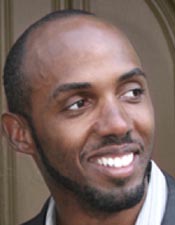
Devon Carbado
Associate Vice Chancellor of BruinX for Equity, Diversity and Inclusion and the Honorable Harry Pregerson Professor of Law, UCLA School of Law
A former Associate Provost at UCLA, Devon Carbado is currently an Associate Vice Chancellor for the university and the Honorable Harry Pregerson Professor of Law at UCLA School of Law. His expertise includes Constitutional Criminal Procedure, Constitutional Law, and Critical Race Theory and his scholarship appears in law reviews at UCLA, Berkeley, Harvard, Michigan, Texas, Cornell, and Yale, among other places. Professor Carbado has won numerous teaching awards, including being elected Professor of the Year by the UCLA School of Law classes of 2000 and 2006 and received the Law School's Rutter Award for Excellence in Teaching in 2003 and the University's Distinguished Teaching Award, the Eby Award for the Art of Teaching in 2007. In 2005 Professor Carbado was named an inaugural recipient of the Fletcher Foundation Fellowship. Modeled on the Guggenheim fellowships, it is awarded to scholars whose work furthers the goals of Brown v. Board of Education. In 2016 he was named an Atlantic Philanthropies Fellow, and in 2017 he was awarded the American Bar Foundation’s Neukom Fellows Research Chair in Diversity and Law. A former Vice Dean of UCLA School of Law, Professor Carbado has also taught at UC Berkeley Law School, University of Virginia Law School, and Harvard Law School. Professor Carbado earned his Bachelor’s Degree in History from UCLA and his Juris Doctorate from Harvard Law School.
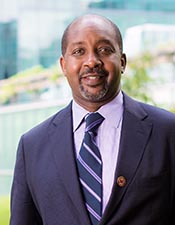
Mario Barnes
Toni Rembe Dean and Professor of Law, University of Washington School of Law
Mario L. Barnes is the Toni Rembe Dean and Professor of Law at the University of Washington School of Law. His research addresses the legal and social implications of race and gender, primarily in the areas of employment, education, criminal and military law. He has been an active member within the Law and Society Association and the empirical methods and critical race theory (eCRT) national working group.
Dean Barnes joined UW in 2018 from UC Irvine School of Law where he served as professor, associate dean for research, senior associate dean for academic affairs and taught courses in criminal justice, constitutional law, critical theories and national security law. He also was a co-director in the Center on Law, Equality and Race (CLEaR).
Before joining UCI in 2009, he was a faculty member at the University of Miami School of Law, where he was twice selected by the as Outstanding Law Professor by the UM BLSA.
Prior to his academic career, Barnes spent 12 years on active duty in the U.S. Navy, including service as a prosecutor, defense counsel, special assistant U.S. attorney, and on the commission that investigated the 2000 bombing of the USS Cole in Yemen. His reserve assignments included service with the Naval Mine and Anti-Submarine Warfare Command in San Diego, the Navy Inspector General's Office in Washington, D.C., and U.S. Special Operations Command in Tampa. He retired from the Navy in 2013, after 23 years of combined active and reserve service.
Dean Barnes earned both his bachelor's degree in psychology and his juris doctorate from the University of California, Berkeley. He completed his master of laws at the University of Wisconsin. He is the recipient of the Association of American Law Schools Minority Groups Section’s Derrick A. Bell Award for junior scholars (2008) and Clyde Ferguson Award for senior scholars (2015).
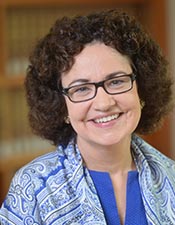
Rachel Moran
Dean Emerita and Michael J. Connell Distinguished Professor of Law, UCLA School of Law
Rachel F. Moran is Dean Emerita and Michael J. Connell Distinguished Professor of Law at UCLA School of Law. Prior to her appointment at UCLA, Professor Moran was the Robert D. and Leslie-Kay Raven Professor of Law at UC Berkeley School of Law. From July 2008 to June 2010, Moran served as a founding faculty member of the UC Irvine Law School.
Professor Moran is a leading scholar on equality of opportunity in education. She has written numerous articles and book chapters exploring bilingual education, desegregation, and affirmative action. In addition, she is co-author of one of the most widely adopted casebooks in the field, Educational Policy and the Law (Cengage 2011) (with Mark G. Yudof, Betsy Levin, James E. Ryan, and Kristi L. Bowman). Professor Moran also has published widely on questions of race and the law. Her work includes two highly regarded books on the subject: Interracial Intimacy: The Regulation of Race and Romance (Chicago 2001), and Race Law Stories (Foundation Press 2008) (with Devon W. Carbado). In 2015, Professor Moran was chosen as the inaugural William H. Neukom Fellows Research Chair in Diversity and Law at the American Bar Foundation (ABF). In that capacity, she is co-directing an ABF research project on “The Future of Latinos in the United States: Law, Opportunity, and Mobility” with Robert L. Nelson, Director Emeritus of the ABF.
Professor Moran is highly active in the legal and educational community. In September 2011, she was selected by President Barack Obama to serve on the Permanent Committee for the Oliver Wendell Holmes Devise. She was appointed President of the Association of American Law Schools (AALS) in 2009 and previously was a member of the AALS Executive Committee. In May 2014, she was chosen by American Bar Association (ABA) President James R. Silkenat to serve on the ABA Task Force on the Financing of Legal Education. She sat on the Standing Committee of the ABA Division of Public Education; served as a Senator of the Phi Beta Kappa Society; and was chair of the AALS Nominating Committee for 2013 Officers and Members of the Executive Committee. She is a Fellow of the American Bar Foundation, a member of the American Law Institute, and a Fellow of the Civil Rights Project/Proyecto Derechos Civiles.
Moran received her A.B. in Psychology with Honors and with Distinction from Stanford University in 1978, where she was elected to Phi Beta Kappa her junior year. She obtained her J.D. from Yale Law School in 1981. Following law school, she clerked for Chief Judge Wilfred Feinberg of the U.S. Court of Appeals for the Second Circuit and worked for the San Francisco firm of Heller Ehrman White & McAuliffe. She joined the Berkeley faculty in 1983. She has been a visiting professor at UCLA (1988, 2002), Stanford (1989), NYU School of Law (1996), the University of Miami Law School (1997), the University of Texas (2000), Fordham Law School (2005), and Harvard Law School (2018). From 1993 to 1996 Moran served as Chair of the Chicano/Latino Policy Project (now the Center for Latino Policy Research) at UC Berkeley’s Institute for the Study of Social Change, and in 2003, she became Director of the Institute. In 1995, she received the UC Berkeley Distinguished Teaching Award.
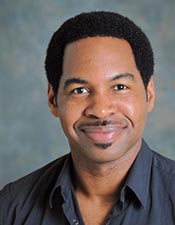
Russell Robinson
Faculty Director, Center on Race, Sexuality & Culture and Distinguished Haas Chair in LGBT Equity Professor of Law, University of California, Berkeley Law
Prior to joining UC Berkeley, Robinson was Professor of Law at UCLA. Robinson graduated with honors from Harvard Law School (1998), after receiving his B.A. summa cum laude from Hampton University (1995). Robinson clerked for Judge Dorothy Nelson of the Ninth Circuit Court of Appeals (1998-99) and for Justice Stephen Breyer of the U.S. Supreme Court (2000-01). He has also worked for the U.S. Department of Justice, Office of Legal Counsel (1999-2000) and the firm of Akin, Gump, Strauss, Hauer and Feld in Los Angeles, practicing entertainment law (2001-02).
Robinson’s scholarly and teaching interests include antidiscrimination law, race and sexuality, law and psychology, constitutional law, and media and entertainment law. His publications include: “Unequal Protection,” 67 Stan. L. Rev.(2015); “Diverging Identities,” in After Marriage: The Future of LGBT Rights, NYU Press (2015); “Marriage Equality and Postracialism,” 61 UCLA L. Rev. 1010 (2014); “Masculinity as Prison: Sexual Identity, Race, and Incarceration,” 99 Calif. L. Rev. 1309 (2011); “Casting and Caste-ing: Reconciling Artistic Freedom and Antidiscrimination Norms,” 95 Calif. L. Rev. 1 (2007); “Uncovering Covering,” 101 Nw. U. L. Rev. 1809 (2007); “Perceptual Segregation,” 108 Colum. L. Rev. 1093 (2008); “Structural Dimensions of Romantic Preferences,” 76 Fordham L. Rev. 2787 (2008); and “Racing the Closet,” 61 Stan. L. Rev. 1463 (2009).

Michal Kurlaender
Professor of Education Policy and Chancellor Fellow, University of California, Davis
Michal Kurlaender is Professor of Education Policy and Chancellor Fellow at the University of California, Davis. She is a Faculty Director of Policy Analysis for California Education (PACE) and lead researcher of Wheelhouse: The Center for Community College Leadership and Research. Kurlaender primarily investigates inequalities in access to and success in college, alignment of public K-12 and postsecondary systems of education, and alternative pathways to college and careers. In addition to working with national data, Kurlaender works closely with administrative data from all three of California’s public higher education sectors–the University of California, the California State University, and the California Community College systems. She is PI on a collaborative grant with the California Department of Education (funded by the Institute of Education Sciences) to investigate California’s College and Career Readiness Standards in the Era of Common Core Assessments. Kurlaender also studies the impact of racial and ethnic diversity on student outcomes. She is an expert on the dismantling of federal mandatory and voluntary K-12 school desegregation plans and persistent inequalities in segregated minority schools, including access to adequate classroom resources and good teachers.

Melissa Hart
Justice, Colorado Supreme Court
Justice Hart was appointed by Governor John Hickenlooper to serve on the Colorado Supreme Court on December 14, 2017. Prior to joining the Court, Justice Hart was a professor at the University of Colorado Law School, where she directed the Byron R. White Center for the Study of American Constitutional Law. Throughout her years as a professor, Justice Hart maintained an active pro bono practice, writing amicus briefs in appellate courts and representing clients through Metro Volunteer Lawyers. Her teaching and scholarship focused on access to justice, constitutional law, judicial decision making, legal ethics, employment discrimination, and civil procedure.
When Justice Hart was in academia, her work focused on Employment Discrimination and Civil Rights. She was an active advocate for affirmative action and wrote several articles about the role of class in selecting college admits. In 2008, she ran a campaign against Amendment 46 (the Colorado version of Prop 209). The Ward Connerly initiative was defeated on the merits for the first time during that Colorado campaign.
Justice Hart grew up in Denver, where she graduated from East High School. She earned her bachelor’s degree from Harvard-Radcliffe College and then spent a year teaching at a high school in Athens, Greece. She returned to study at Harvard Law School, where she was the Articles Editor for the Harvard Law Review and Book Review Editor on the Harvard Women’s Law Journal. After graduating from law school in 1995, she clerked for Judge Guido Calabresi of the Second Circuit Court of Appeals and for Justice John Paul Stevens on the United States Supreme Court. She practiced law for several years in Washington, D.C., including as a Trial Attorney at the U.S. Department of Justice.
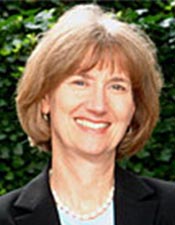
Katharine T. Bartlett
A. Kenneth Pye Professor of Law, Duke University School of Law
Katharine T. Bartlett, A. Kenneth Pye Professor of Law, teaches family law, employment discrimination law, gender and law, and contracts, and publishes widely in the fields of family law, gender theory, employment law, theories of social change, and legal education. She authors the leading casebook (with Joanna Grossman, Deborah Rhode, and Deborah Brake) in the area of gender law.
Professor Bartlett served as a reporter for the American Law Institute's Principles of the Law of Family Dissolution (2002), for which she was responsible for the provisions relating to child custody. For her work on this project, she was named R. Ammi Cutter Chair in 1998.
Professor Bartlett earned her degrees at Wheaton College, Harvard University, and the University of California at Berkeley. Before coming to Duke, she was a law clerk on the California Supreme Court and a legal services attorney in Oakland, California. She has been a visiting professor at UCLA and at Boston University, a scholar in residence at New York University School of Law and Columbia Law School, and a fellow at the National Humanities Center in Research Triangle Park, supported by the Rockefeller Foundation.
Professor Bartlett has received numerous honors over the years. In 1994, she won the University Scholar/Teacher of the Year Award at Duke University. She was awarded Equal Justice Works' Dean John R. Kramer Award (“Dean of the Year”) for “leadership in public service in legal education” in 2006 and received an honorary doctorate from Wheaton College in 2008.
She served as Dean of Duke Law School from 2000-2007.
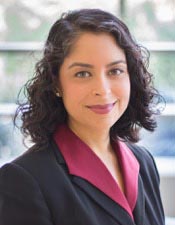
Meera Deo
Director of the Law School Survey of Student Engagement and Professor of Law, Thomas Jefferson School of Law
Meera E. Deo, JD, PhD, is Director of the Law School Survey of Student Engagement (LSSSE) and Professor of Law at Thomas Jefferson School of Law. She is currently a Visiting Professor at UC Davis School of Law after previously visiting at the law schools of UC Irvine, UCLA, and UC Berkeley. Her research merges jurisprudence with empirical methods to interrogate institutional diversity, affirmative action, and racial representation. Her scholarship has been published in leading law journals and cited in numerous amicus briefs filed in the U.S. Supreme Court. Professor Deo’s forthcoming book, Unequal Profession: Race and Gender in Legal Academia (Stanford University Press, 2019), draws from her landmark Diversity in Legal Academia project, which examines how the intersection of raceX gender affect interactions with faculty and students, tenure and promotion, work/life balance, and other aspects of the law faculty experience. As a University of Michigan law student, she was an Intervening-Defendant and member of the legal team supporting integration/affirmative action in Grutter v. Bollinger. She later practiced civil rights law with the ACLU National Legal Department and the California Women's Law Center. The National Science Foundation (NSF), the Paul & Daisy Soros Fellowship, and numerous internal grants and awards supported her at UCLA, where she earned her doctorate in Sociology. Professor Deo has served as a Senate-appointed member of the California Commission on Access to Justice, an empirical research consultant to the ACLU of Southern California, and Chair of the AALS Section on Law and the Social Sciences.

William Kidder
Research Associate, UCLA Civil Rights Project
William (Bill) Kidder has more than a dozen years of experience in upper administration within the University of California and California State University systems, including seven years at UC Riverside where he was the assistant provost and then associate vice chancellor overseeing non-discrimination compliance offices. Mr. Kidder is also an accomplished scholar around racial and gender equality in higher education – connecting social science, law and policy. Bill’s works on affirmative action were cited in dozens of amicus briefs in Grutter v. Bollinger and Fisher v. University of Texas, and Supreme Court Justice Sonia Sotomayor’s eloquent dissent in Schuette cited Mr. Kidder’s policy research to document the harmful impact of Michigan’s affirmative action ban.
Mr. Kidder has overseen Title IX operations at two California universities and he recently teamed with Professor Nancy Chi Cantalupo on a series of articles investigating the difficult issue of faculty-student sexual harassment in higher education. Their original contribution to this UC Davis Law Review symposium advances this line of research by connecting campus climate issues (ever-present since Bakke) to the accountability challenge faced today by universities in the wake of widespread sexual harassment scandals and #MeToo.
Mr. Kidder has published extensively on empirical refutations of the so-called “mismatch” hypothesis about law school and undergraduate-level affirmative action, including in the Stanford Law Review and Texas Law Review. Bill’s works evaluating affirmative action bans, “race-neutral” alternatives, campus racial climate, and/or the impact of standardized testing have appeared in the UCLA Law Review Discourse, the Journal of College & University Law, a commissioned paper (with UCLA’s Patricia Gándara) for ETS, the California Law Review, Law & Social Inquiry, Santa Clara Law Review, Harvard Latino Law Review and Harvard Blackletter Law Journal. Mr. Kidder is a past board member of Asian Pacific Americans in Higher Education (APAHE). Bill received his J.D. at the UC Berkeley School of Law -- where he was awarded the Thelin Marrin prize for law journal writing – and he earned his B.A. in psychology from UC Berkeley.
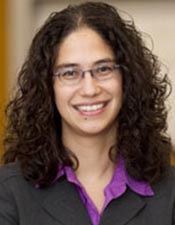
Nancy Chi Cantalupo
Associate Professor, Barry University School of Law
Nancy Chi Cantalupo is an Associate Professor at Barry University School of Law. Prior to joining Barry Law, she held positions as Associate Vice President for Equity, Inclusion & Violence Prevention at a higher education professional association; Assistant Dean for Clinical Programs and Adjunct Professor at Georgetown Law; a Research Fellow with the Victim Rights Law Center; and an attorney with Drinker Biddle & Reath LLP. Her scholarship focuses on the use of law to combat discriminatory violence, particularly gender-based violence, and includes articles in the Yale Law Journal Forum, Maryland Law Review, the peer-reviewed social science journal Trauma, Violence & Abuse, a co-authored study in the Utah Law Review and a forthcoming article in the Harvard Journal of Law and Gender. She has written op-eds for the New York Times, Time, USA Today, and Washington Post.
Professor Cantalupo is a nationally-recognized expert on gender-based violence in education, and her scholarship draws from her over 20 years of anti-campus sexual violence work as a researcher, campus administrator, student activist, victims’ advocate, attorney, and policymaker. This work includes consultations with President Obama’s White House Task Force to Protect Students from Sexual Assault, participation on a U.S. Senate roundtable, service as a Negotiator on the Negotiated Rulemaking Committee that amended regulations for the Clery Act, and testimony before the Maryland and Virginia state legislatures. Recently she co-authored “Title IX & the Preponderance of the Evidence: A White Paper,” signed by over 100 law professors from across the country and was asked by the American Bar Association’s Commission on Domestic and Sexual Violence to write Standards of Practice for investigations of campus dating, domestic, sexual and stalking violence.
Professor Cantalupo’s past and present pro bono work includes serving on the Advisory Boards for SurvJustice and the Clery Center for Security on Campus, as well as the Board of Directors for the Asian/Pacific-Islander Domestic Violence Resource Project and the Conference of Asian Pacific American Law Faculty.
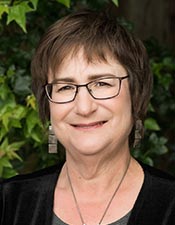
Lauren Edelman
Agnes Roddy Robb Professor of Law and Professor of Sociology at the University of California, Berkeley
Lauren B. Edelman is the Agnes Roddy Robb Professor of Law and Professor of Sociology at the University of California, Berkeley. Before joining the Boalt faculty in 1996, she was a member of the sociology and law faculties at the University of Wisconsin, Madison. At UC Berkeley, she served as Director of the Center for the Study of Law and Society from 2004-2009 and as Chair and Associate Dean for Jurisprudence and Social Policy from 2010-2013. Edelman is the winner of a Guggenheim Fellowship, has twice been a fellow at the Center for Advanced Studies in the Behavioral Sciences at Stanford University, and was a fellow at the Rockefeller Center in Bellagio, Italy. She has served as secretary and president of the Law and Society Association, chaired the Sociology of Law section of the American Sociological Association, and was elected to the Sociological Research Association, an honorary society. Edelman’s research addresses the interplay between organizations and their legal environments, focusing on employers’ responses to and constructions of civil rights laws, workers’ mobilization of legal rights, the impact of management practices on law and legal institutions, dispute resolution in organizations, school rights, empirical critical race studies, empirical sociolegal studies, and employer accommodations of disabilities in the workplace. Her publications appear in the American Journal of Sociology, Law & Society Review, Law & Social Inquiry, Law & Policy, Annual Review of Sociology, Annual Review of Law and Social Science and numerous edited volumes. Her recent book is Working Law: Courts, Corporations and Symbolic Civil Rights (University of Chicago Press 2016), winner of the 2017 George R. Terry Book Award from the Academy of Management and the 2018 Distinguished Scholarly Book Prize from the American Sociological Association.
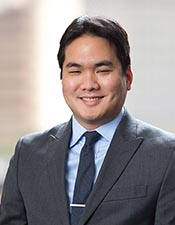
Brent K. Nakamura
Associate, Boies Schiller Flexner LLP
Brent K. Nakamura is an associate at Boies Schiller Flexner LLP where he practices in the areas of antitrust, appeals, and class actions. Brent’s appellate practice includes briefing before the U.S. Courts of Appeal and U.S. Supreme Court. He also works on behalf of pro bono clients including the National Women’s Law Center and the League of Women Voters. Brent’s academic interests center on the fields of the sociology of law, tax, civil procedure, and law and economics. His published work has appeared in the peer-reviewed Public Finance Review. He is a graduate of the University of California, Berkeley, School of Law and Northwestern University. After law school, Brent served as a law clerk to the Honorable Dale S. Fischer of the Central District of California.

Yuvraj Joshi
Doctoral Candidate, Yale Law School
Yuvraj Joshi is a Doctoral Candidate and SSHRC Fellow at the Yale Law School. His main areas of research include constitutional and comparative law, gender and sexuality law, family law, transitional justice, and critical perspectives on human rights.
Prior to starting his doctoral studies, Joshi worked on a range of human and civil rights issues with organizations including Human Rights Watch, UNAIDS, and Lambda Legal. He holds law degrees from the Yale Law School and University College London and a bachelor of arts from the University of Toronto.
Joshi's research has appeared or is forthcoming in academic journals including the University of California Davis Law Review, Columbia Human Rights Law Review, Stanford Law Review Online, and Columbia Law Review Online. He has also written for The Washington Post, The Guardian, Slate Magazine, and World Politics Review.
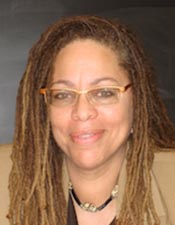
Cheryl Harris
Rosalinde and Arthur Gilbert Professor in Civil Rights and Civil Liberties, UCLA School of Law
Cheryl I. Harris is the Rosalinde and Arthur Gilbert Foundation Chair in Civil Rights and Civil Liberties at UCLA School of Law where she teaches Constitutional Law, Civil Rights, Employment Discrimination, Critical Race Theory and Race Conscious Remedies.
A graduate of Wellesley College and Northwestern School of Law, Professor Harris began her teaching career in 1990 at Chicago- Kent College of Law after working for one of Chicago’s leading criminal defense firms and later serving as a senior legal advisor in the City Attorney’s office as part of the reform administration of Mayor Harold Washington of Chicago. The interconnections between racial theory, civil rights practice, politics, and human rights have been important to her work. She was a key organizer of several major conferences that helped establish a dialogue between U.S. legal scholars and South African lawyers during the development of South Africa’s first democratic constitution. This work played a significant role in the production of her acclaimed and influential article, “Whiteness as Property” (Harvard Law Review).
Since joining the UCLA Law faculty in 1998, Professor Harris has continued to produce groundbreaking scholarship in the field of Critical Race Theory, particularly engaging the issue of how racial frames shape our understanding and interpretation of significant events like Hurricane Katrina—(“Whitewashing Race”, in California Law Review), admissions policies (“The New Racial Preferences” in California Law Review)(with Carbado) and anti-discrimination law (“Reading Ricci: Whitening Discrimination, Race-ing Test Fairness” in UCLA Law Review) (with West-Faulcon).
She has also lectured widely on issues of race and equality at leading institutions here and abroad, including in Europe, South Africa, and Australia, and has been a frequent contributor to various media outlets on current events and cases involving race and equality.
Professor Harris has served as a consultant to the MacArthur Foundation and has been on the board of leading academic societies, including the American Studies Association. She has served as faculty director for the Critical Race Studies Program at UCLA Law School and has been widely recognized as a groundbreaking teacher in the area of civil rights education, receiving the ACLU Foundation of Southern California's Distinguished Professor Award for Civil Rights Education.
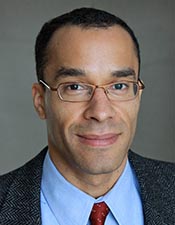
Jonathan D. Glater
Professor of Law at the University of California, Irvine, School of Law
Jonathan D. Glater is Professor of Law at the University of California, Irvine, School of Law. Professor Glater’s writing focuses on the role of law as both response to and source of barriers to higher education, a subject that he has analyzed in law review articles, essays, and shorter commentaries since joining the academy. His research interests include the impact of federal aid policy on access to college, the effects of education debt on student decision-making, and relationships between higher education finance and the functioning of financial markets. He has been a visiting professor at Stanford Law School (Spring 2016).
Prior to joining the UCI faculty, Professor Glater worked for nine years as a reporter at The New York Times, where he wrote about the business of law and about higher education finance. He practiced law at the offices of Cleary, Gottlieb, Steen & Hamilton in New York from 1999-2000 and at Marval, O’Farrell & Mairal in Buenos Aires, Argentina, from 1998-99. He holds a J.D. from Yale Law School (1998), an M.A. from Yale University (1998), and a B.A. from Swarthmore College (1993).
Moderators
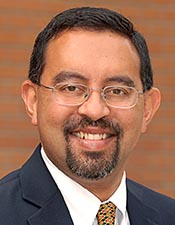
Ashutosh Bhagwat
Martin Luther King Jr. Professor of Law, UC Davis School of Law
Ash Bhagwat joined the UC Davis School of Law faculty in 2011. Prior to joining UC Davis, he taught at UC Hastings College of the Law for seventeen years. Bhagwat is the author of The Myth of Rights, published by the Oxford University Press in 2010, as well as numerous books, articles, and book chapters on a wide variety of subjects, ranging from the structure of constitutional rights, to free speech law, to the California Electricity Crisis. Journals his articles have appeared in include the Yale Law Journal, the Supreme Court Review, the California Law Review, the Administrative Law Review, and the University of Illinois Law Review.
Bhagwat is a summa cum laude graduate of Yale University, where he received a B.A. with Honors in History. He is also a graduate of The University of Chicago Law School, where he served as Articles Editor of the University of Chicago Law Review. He then completed clerkships with Judge Richard A. Posner of the United States Court of Appeals for the Seventh Circuit, and Associate Justice Anthony M. Kennedy of the United States Supreme Court. Prior to joining the Hastings faculty, Bhagwat practiced appellate and regulatory law for two years in the Washington, D.C. offices of the Sidley & Austin law firm.
In May of 2011, Governor Jerry Brown appointed Bhagwat to serve on the Board of Governors of the California Independent System Operator, a public benefit corporation responsible for running the high-voltage electricity grid in California. In 2003, he was awarded the Rutter Award for Teaching Excellence at UC Hastings. Bhagwat is a member of the American Law Institute.
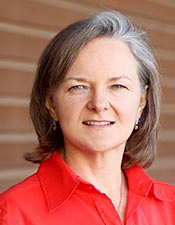
Lisa R. Pruitt
Martin Luther King, Jr. Professor of Law, UC Davis School of Law
Professor Lisa Pruitt's career spans the globe, literally and figuratively. Before joining the UC Davis law faculty in 1999, she worked abroad for almost a decade in settings ranging from international organizations to private practice. Pruitt worked with lawyers in more than 30 countries, negotiating cultural conflicts in several arenas. It is not surprising that a common theme of her research interests is how law and legal institutions manage and respond to cultural difference and cultural change.
Pruitt's recent scholarship is still about cultural difference, but the context is closer to home. She now writes about the intersection of law with rural livelihoods, thus bringing her focus to that which is popularly perceived as quintessentially local. Her work considers a range of ways in which rural places are distinct from what has become the implicit urban norm in legal scholarship. Pruitt reveals, for example, how the economic, spatial, and social features of rural locales profoundly shape the lives of residents, including the junctures at which they encounter the law. Her most recent work considers how rural spatiality inflects dimensions of gender, race, and ethnicity. In it, Pruitt challenges the association of the rural with the local by revealing the ways in which rural lives and rural places are enmeshed with national and global forces including legal ones.
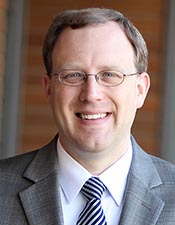
Carlton F.W. Larson
Professor of Law, UC Davis School of Law
Carlton Larson is a scholar of American constitutional law and Anglo-American legal history. His scholarship addresses a wide range of issues, including enemy combatant detentions, legacy preferences in public universities, the historical basis of Second Amendment rights, and parents’ rights to name their children.
Professor Larson is one of the nation’s leading authorities on the law of treason and is the author of the book The Trials of Allegiance: Treason, Juries, and the American Revolution (forthcoming, Oxford University Press).
Professor Larson’s scholarship has been cited by numerous federal and state courts and has been profiled in The New York Times, The Economist, TIME, and many other publications. He is a frequent commentator for the national media on constitutional law issues.
Professor Larson is a graduate of Harvard University and Yale Law School, where he was an Articles Editor of The Yale Law Journal and Executive Editor of The Yale Journal of Law & the Humanities. Prior to joining the UC Davis law faculty, Professor Larson served as a law clerk to Judge Michael Daly Hawkins of the United States Court of Appeals for the Ninth Circuit and spent three years as a commercial litigator at Covington & Burling in Washington, DC.
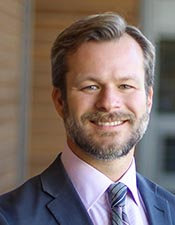
Brian Soucek
Professor of Law & Martin Luther King Jr. Hall Research Scholar, UC Davis School of Law
Brian Soucek is a graduate of Boston College (B.A., Philosophy and Economics); Columbia University (Ph.D., Philosophy), where he was awarded the Core Preceptor Prize for his teaching; and Yale Law School (J.D.), where he was Comments Editor for the Yale Law Journal, a Coker Fellow in Procedure and won the Munson Prize for his work in the school’s immigration clinic. Prior to law school, Soucek taught for three years in the Humanities Collegiate Division and Philosophy Department at the University of Chicago, where he was Collegiate Assistant Professor and Co-Chair of the Society of Fellows in the Liberal Arts. After law school, he clerked for the late Mark R. Kravitz, United States District Judge for the District of Connecticut, and the Hon. Guido Calabresi of the Second Circuit Court of Appeals.
Professor Soucek’s articles have been cited by the Sixth and Seventh Circuits, referenced and excerpted in leading casebooks in Immigration Law and Sexual Orientation Law, discussed by the Wall Street Journal, and honored with the Dukeminier Award from UCLA’s Williams Institute for the year’s best article on sexual orientation and gender identity law. Professor’s Soucek’s published work spans from refugee/asylum law to constitutional and statutory antidiscrimination law to a recent set of projects on law’s aesthetic judgments. Since coming to UC Davis School of Law in Fall 2013, Professor Soucek has taught Constitutional Law II: Equal Protection and the First Amendment; Civil Procedure; Antidiscrimination Law; Asylum and Refugee Law; and an undergraduate First Year Seminar on Free Expression.

